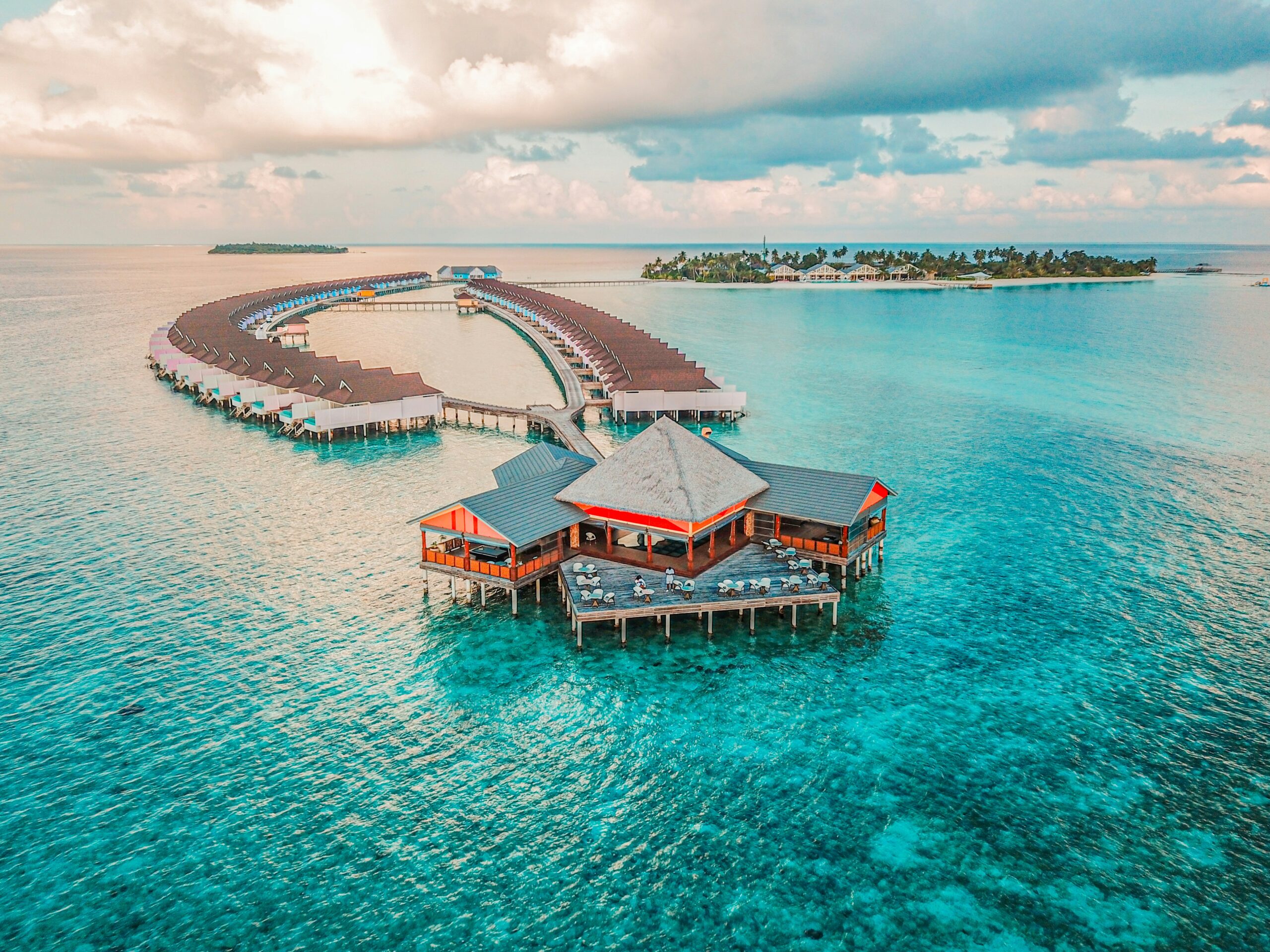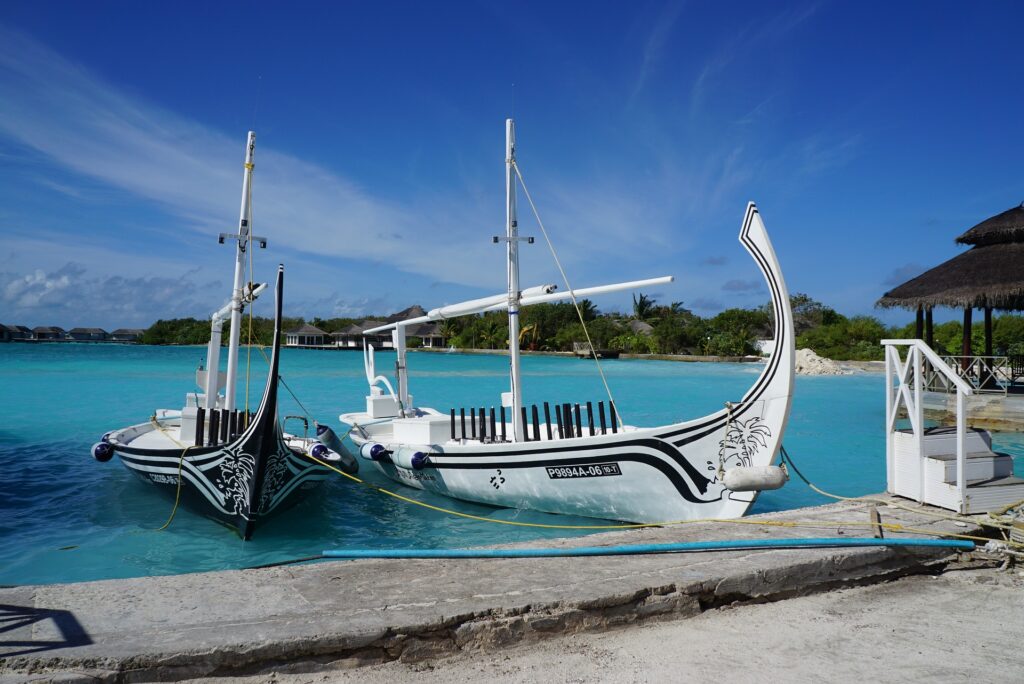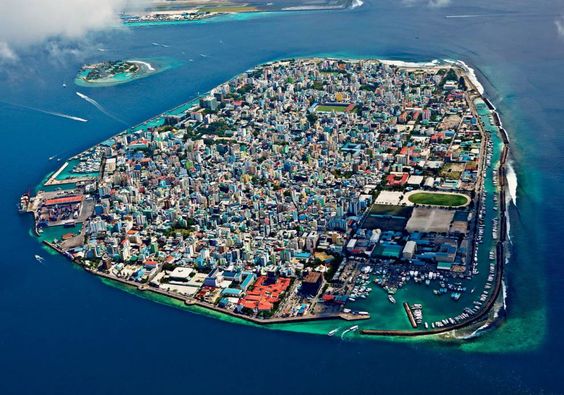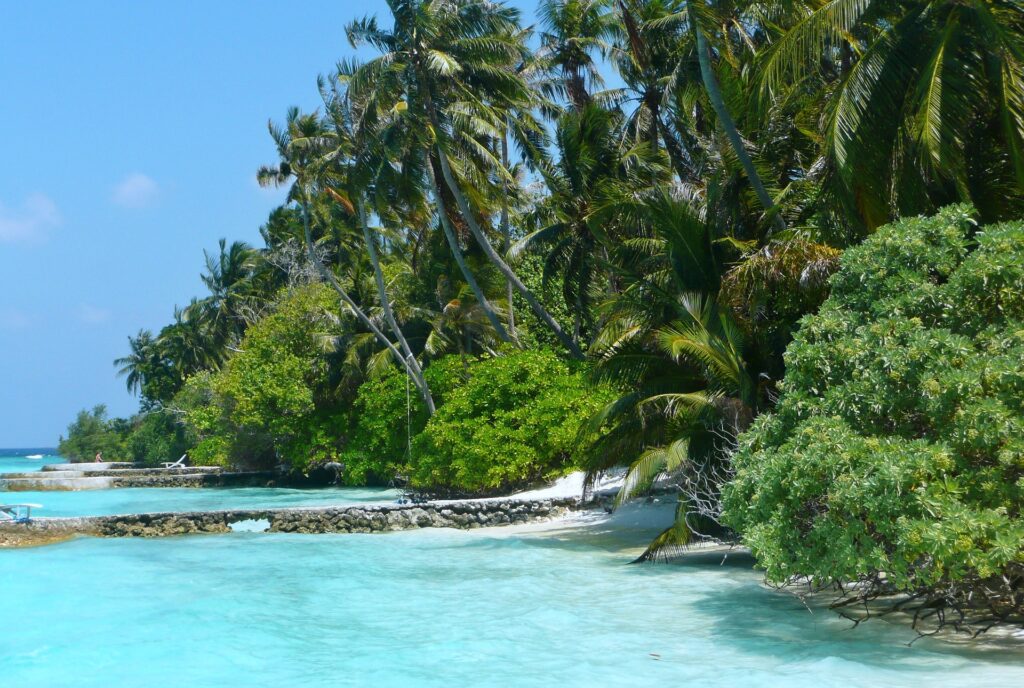


31/01/2024 9:00 am

Nestled in the heart of the Indian Ocean, the Maldives is a paradisiacal archipelago composed of 26 atolls. Each of them is adorned with pristine coral reefs and turquoise lagoons. This island nation, renowned for its luxury resorts, crystal-clear waters, and vibrant marine life, is a haven for those seeking a tranquil escape. So, let’s delve into the captivating story of the Maldives, from its ancient history to the modern-day oasis it has become.
The Maldives’ narrative unfolds against a backdrop of ancient trade routes, where Arab, Indian, and Southeast Asian traders navigated the turquoise waters as early as the 3rd century BC.
Embracing Islam in the 12th century, the Maldives carved its cultural identity, and today, the archipelago stands as one of the world’s most exclusively Islamic nations. The islands witnessed colonial influences from the Portuguese and Dutch before gaining independence in 1965.

The capital city, Malé, is a bustling hub that offers a plethora of experiences. Yoy can explore the Old Friday Mosque, a testament to the the country’s Islamic heritage and an architectural masterpiece dating back to the 17th century. Also, go through vibrant markets, where the scent of exotic spices mingles with the chatter of locals. The Maldives National Museum and Maldives Islamic Centre provide deeper insights into the nation’s rich history and cultural evolution.

One of the most distinctive features of Male is its geographical composition. The city is situated on one of the many coral atolls that make up the Maldives archipelago, with its boundaries defined by the azure waters of the Indian Ocean. The island, characterized by its narrow streets and vibrant local markets, offers a fascinating blend of traditional Maldivian architecture and modern structures. Despite its modest dimensions, Male plays a crucial role in shaping the identity and functioning of the Maldives.
Venture beyond Malé to discover the distinct character of each atoll. Maafushi, a local island, showcases authentic Maldivian life, while Thulusdhoo is renowned for its craftsmanship, notably the production of traditional Maldivian surfboards. The Baa Atoll, a UNESCO Biosphere Reserve, invites nature enthusiasts to witness the harmonious coexistence of humans and nature, with vibrant marine life and lush landscapes.
The Maldives is a haven for divers and snorkelers alike. Beneath the azure surface lies a world of wonders – from the gentle gliding of manta rays in Hanifaru Bay to the intricate coral formations of the Ari Atoll. Also, The Maldives’ commitment to marine conservation is evident in its protected areas. It ensures that the underwater beauty remains unspoiled for generations.

Actually, The Maldives has become synonymous with luxury nowdays. Moreover, they offers travelers an array of exclusive resorts that redefine opulence. Overwater villas, perched above the turquoise lagoons, provide intimate connections with the surrounding nature. Michelin-starred dining experiences, rejuvenating spas, and an array of water-based activities cater to the desires of discerning travelers seeking the epitome of indulgence.
In an era of heightened environmental consciousness, the Maldives stands at the forefront of sustainable tourism. Initiatives to protect coral reefs, promote responsible fishing practices. Except that they minimize carbon footprints showing the nation’s dedication to preserving its natural wonders.

In conclusion, the Maldives is not just a destination but also a mosaic of experiences, where the echoes of history blend seamlessly with the serenity of the present. Whether you seek adventure beneath the waves, cultural immersion, or the epitome of luxury, this country beckons with open arms, inviting you to explore a world where time slows. In fact, paradise is not just a destination but a way of life.